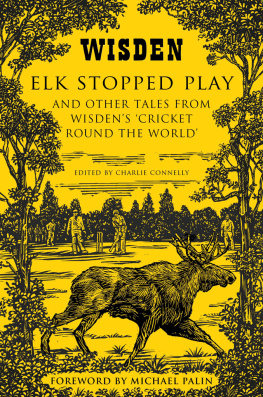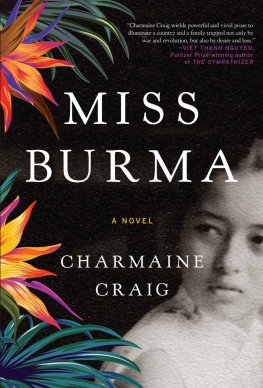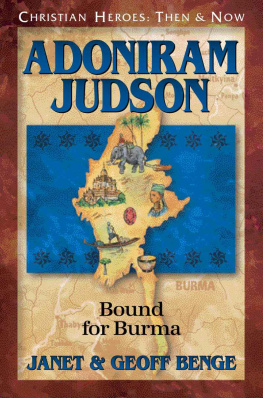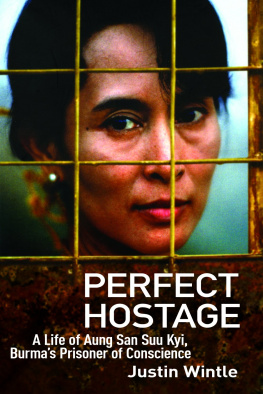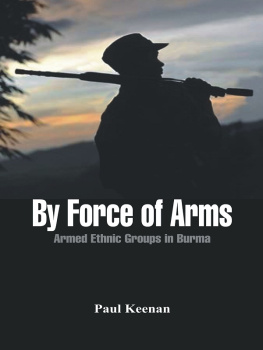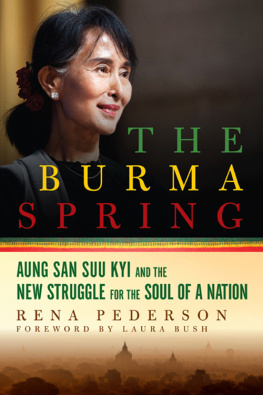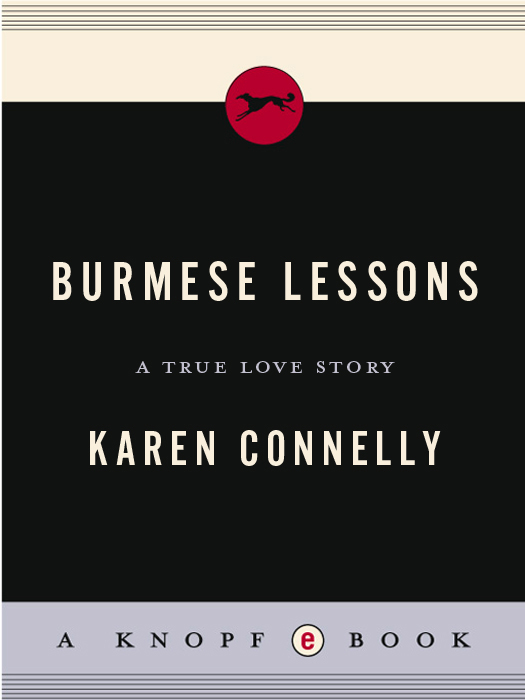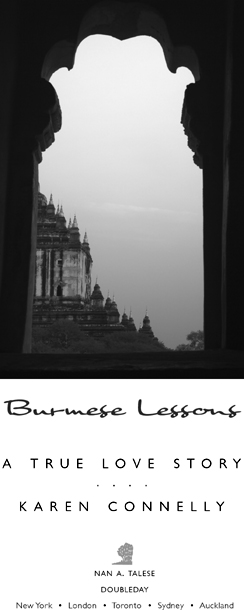ALSO BY KAREN CONNELLY
Fiction
The Lizard Cage
Nonfiction
Touch the Dragon: A Thai Journal
One Room in a Castle: Letters from Spain, France, and Greece
Listen to the Reed: A Dialogue with Fereshteh Molavi
Poetry
The Small Words in My Body
This Brighter Prison
The Disorder of Love
The Border Surrounds Us
Grace and Poison
IN MEMORIAM
Sayagyi Tin Moe
November 19, 1933January 22, 2007
For Suragamika,
on the long journey
For Lucas, beloved
Looking back on what has gone before, one cannot help but think that each event, each moment, could not have happened any other way. But this confuses an honest accounting of the past with another kind of denial. Each moment of life is filled with choices. Should I keep my hand moving over this page? Should I continue the narration as planned? As it has been written before?
Or am I free to imagine?
from A Chorus of Stones by Susan Griffin
PROLOGUE: FIRST WORD

In a quiet street near Sule Pagoda, a woman smiles at me for no reason. I smile back and stop walking. She whispers to the little boy playing on the ground between us. He hops forward and takes my hand, pulling me up the steps past his mother (his aunt? a neighbor?) toward the entrance of a narrow cement building.
At the threshold, he stops. I stop, too, and crane my neck to look inside. Surrounded by flowers, the Buddha sits at the back of the dark room. The boy does a little faux bow, suggesting that I bow also.
Why not? I slip off my shoes to enter the candlelit place, then kneel and genuflect three times. The woman and the child and a few other children stand behind me, framed in the doorway. After I bow, the little boy claps his hands. The others laugh. At the boy? Or at me? Or with delight that I am willing to pay homage to the Buddha? The boy, then two little girls, two more boys, and a toddler come barefoot into the room, sidling against one another in shyness. I think Ive happened upon the neighborhood shrine for children. Soon there are a dozen kids clustered around me in the candlelight. As flowers surround the Buddha, I am encircled by thin brown limbs, open faces, an assortment of wide or cautious smiles.
Thus I learn my destiny. I will never leave Rangoon. I will return to this street and find a house here and adopt children as beautiful as these ones, or as beautiful as these spirits, it doesnt matter if they have cleft palates and missing limbs, I will love them, I will live here until I die. The Buddha smiles from his cowl of jasmine and marigold, his eyes half closed. As is the custom, I light more incense, a candle, and bow again. The room is small, the air close and cloying, filled with the sweetness of joss sticks and flowers and candle wax. I wipe trickles of sweat away from my nose, my neck.
What are their names? I do not know.
How do you say What is your name? in Burmese? I will learn that soon, maybe this afternoon, or tomorrow.
My knees and elbows touch the children; the children put their hard little hands into my hands. One small girl climbs into my lap, pure affection, but the others tease her and she tumbles away, embarrassed. Pyramids of oranges and apples sit before the Enlightened One, along with cups of bright yellow liquid, and a gold-edged tea set, each cup full of tea. Yet the Buddha never drinks. A dozen children and two women stare at me as my eyes adjust to the dim light. Sunlight pours down in the street behind me, but Im in another world now.
A heavy lady with tattoos on her arms and a wad of betel in her mouth squeezes into the room; somehow there is more space to accommodate her. That is the nature of life in Asiathere is always more space. She places a glass of the fluorescent yellow liquid before me and urges me to drink. I take a small sip. She smiles. The stuff is thick, sweet, and cold. Three of the older children bow again to the shrine. Then they back away, out of the house.
A few minutes later, they return with a tray of food separated into lacquered black bowls: deep-fried nuts and beans, roasted sesame seeds, pickled tea leaf. A tiny silver spoon matches each portion. The tattooed lady hands me a checkered napkin. The room becomes even darker as the entrance crowds with neighbors. An earnest boy who wears large, heavy-framed glassesowl eyes, the kind I used to wear, tooleans into the room and asks in the most pure-water English, Excuse me, miss, hello, are you a Buddhist?
Not really. But when I was a teenager I lived with a Buddhist family.
He opens his eyes very wide. In Burma?
No. In Thailand.
Oh, I see, I see. His voice carries the inflection of an era when white women in high-waisted dresses sipped the iced tea brought to them by boys like this clever one, who asks me, Did you like to live with Buddhists?
I reply, I did. Very much. It was a long time ago, when I was just a little older than you.
And Buddhism remains with you. A flawless sentence, and true.
Yes. I loved my Thai family. And the Buddha believed in peace, I add. There is an irony, mentioning peace in Rangoon. Yet when he turns to translate I hear only sincerity in his voice.
Our listeners murmur approval, or at least interest. The tattooed lady lays a soft, shiny hand on my inner arm. Hla-deh, she says. I echo, Hla-deh, in response, trying the word out. The children laugh. I say this word to each of them, which elicits giggles, shrieks, downcast eyes from the older girls.
Keen to make conversation, but also shy, the bespectacled young man says over the childrens black heads, Please excuse my broken English. I study only one. He corrects himself immediately. I study alone.
But you speak English very well. Please excuse my broken Burmese.
He smiles, translates for the benefit of the neighbors. Then he excuses himself. I am going to fetch my best friend. He would like to meet you. He is a teacher.
The boy leaves and a woman enters, beautifully dressed in a lavender blouse and a purple sarong. First she genuflects before the Buddha, lights more incense, a candle. Then she turns and bestows upon me a radiant smile. Speaks. I dont understand a word. After a moment of peering at my face, she rises and disappears into the back of the house. For this is a house, a family dwelling; only its small, open-to-the-street sitting room serves as a shrine.
She returns with a round disk of stone and a thick stick of wood. It must be thanaka. The people, especially the women, wear it as a kind of powder, to absorb sweat and to protect their skin from the sun. Ground into a paste, it has a faintly sweet fragrance and a texture like fine wet clay. I wonder if it has healing properties; former political prisoners on the Thai border told me about using the paste on their scabies and insect bites while they were incarcerated. Men dont wear it in an obviously cosmetic manner, as women do, but every man was once a small boy, and his mother smeared the delicate cream on his bare skin before he went outside to play.
Now the woman splashes the smooth stone disk with water. She pushes the heel of her hand against the soft wood; an ivory wedge has opened in the bark at the base of the stick. She rubs the thanaka against the stone in slow circles, adding more water every few seconds until the ground wood becomes a creamy paste. We watch her silently. Its a simple daily thing, something all the women do, but it becomes the first ritual of my arrival, a ceremony attended by children, women, the Buddha himself, glowing there. The woman mimes putting the paste on her own face, then gestures at me, at my cheeks, asking if its all right. I smile. With soft, cool fingers, she smoothes the hair away from my face. The intimacy of the act makes my chest tighten. Food and drink are spread out before me, and a stranger touches my face. Without design or craving. Just thanaka.


